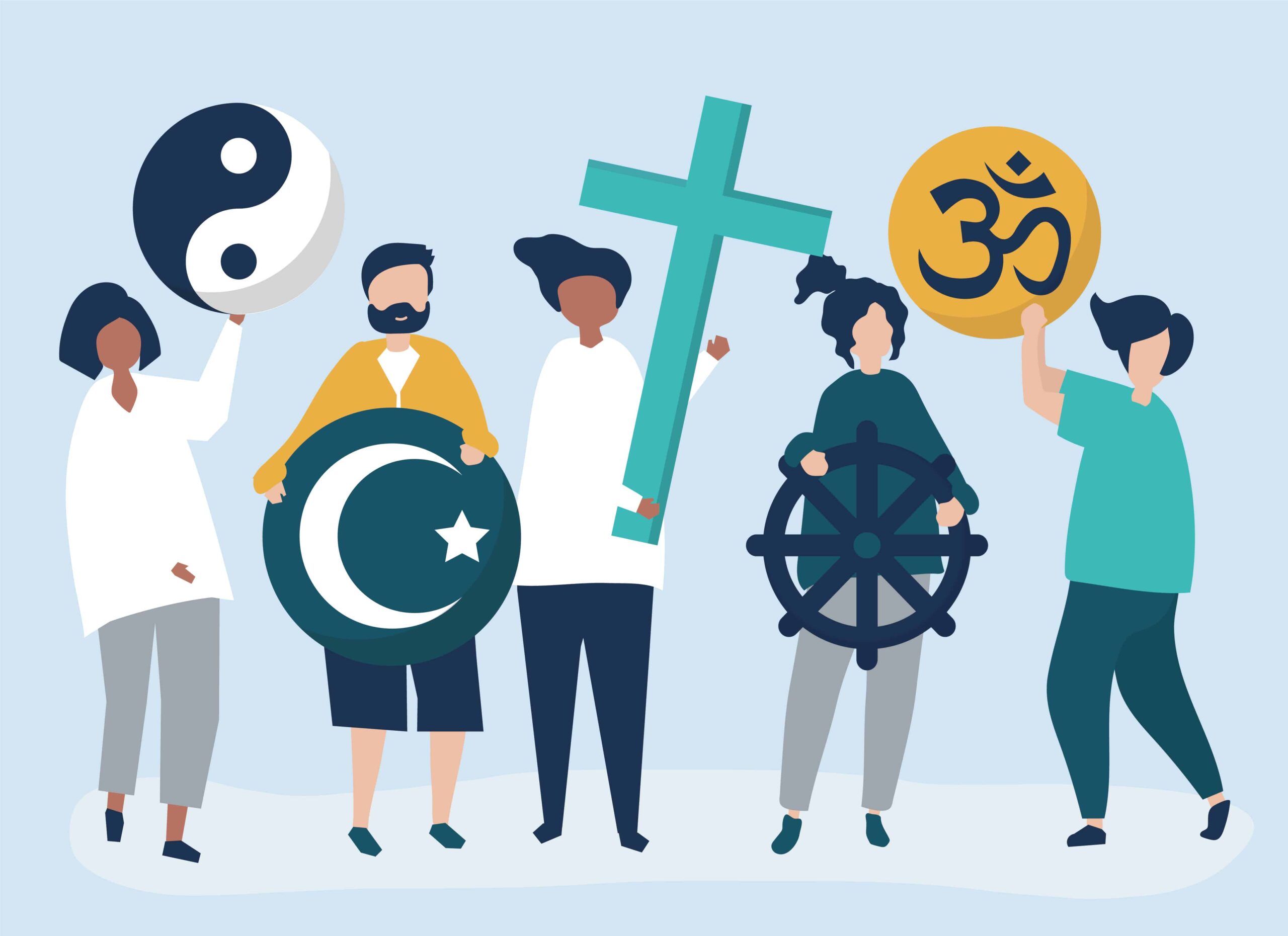The relationship between religion and politics has historically been a contentious arena, often characterized by an intersection of authority, ethics, and societal governance. In this context, the Bahá’í Faith offers an intriguing perspective, advocating for a harmonious coexistence of spiritual principles and civic responsibilities. The teachings of Bahá’u’lláh, the founder of the Bahá’í Faith, emphasize the necessity of both separating and integrating these two spheres. This article explores the core tenets of Bahá’í thought regarding the interaction between religion and politics, offering insights that promise a transformative shift in perspective for individuals seeking a deeper understanding of governance driven by spiritual imperatives.
At the crux of Bahá’í teachings is the principle of the oneness of humanity. This transcendent ideal suggests that every individual, irrespective of nationality, ethnicity, or creed, is fundamentally connected. Such a premise profoundly influences the Bahá’í understanding of political systems. The concept of unity is not purely an abstract notion; it has pragmatic implications for governance and the inherent rights of individuals within a societal framework. Bahá’ís posit that true governance should reflect this unfettered interconnection, fostering a global society where justice prevails over discord.
To comprehend the Bahá’í stance on religion and politics, one must first grasp the significance of justice. Bahá’í teachings emphasize that justice is paramount in establishing a just society. This notion transcends mere legal structures; it necessitates a moral compass that guides political leaders and constituents alike. In a Bahá’í framework, politics devoid of spiritual authenticity is tantamount to a vessel without purpose—it may function, yet it lacks substance. Political systems, therefore, must integrate moral and ethical dimensions aligned with spiritual teachings to truly serve the populace.
Another critical tenet is the idea of consultation. Within Bahá’í communities, consultation is a fundamental practice employed in decision-making processes. It encourages collective deliberation, fostering an environment where diverse viewpoints can converge toward a common goal. This practice bears particular significance in political contexts, where inclusive dialogue can mitigate polarization and enhance cooperation—an urgent necessity in contemporary societies beset by ideological divisions. The Bahá’í approach to governance thus invites us to reconsider the ways in which we engage in political discourse. Instead of divisive rhetoric, a consultative model promotes solidarity based on shared values and aspirations.
Moreover, the Bahá’í Faith articulates a distinctive vision of world governance, encapsulated in the concept of a global commonwealth. This idea entails the establishment of a system of governance that transcends individual nation-states, promoting international cooperation and collaborative problem-solving. The interdependence of nations, as championed by Bahá’í teachings, is particularly relevant in an era marked by global challenges such as climate change, armed conflict, and economic inequality. Bahá’ís assert that a united approach to these issues, grounded in spiritual principles, is imperative for the betterment of humanity at large.
Crucially, the Bahá’í perspective advocates for the role of spiritual leaders as moral guides rather than political authorities. This delineation underscores a vital distinction: while religion should inform the ethical foundations of governance, it should not dictate political power structures. Haunting historical precedents reveal the perils of religious institutions wielding political control, often resulting in the tyranny of theocratic systems. By maintaining a clear boundary between spiritual leadership and political authority, the Bahá’í Faith endeavors to preserve the sanctity of both entities, fostering an environment conducive to personal liberty and inspired governance.
It is also pivotal to acknowledge the role of education within the Bahá’í framework of governance. Education serves as a fundamental pillar for societal development. The Bahá’í teachings assert that an educated populace is essential for fostering informed citizenship and responsible governance. In this sense, the political implications are profound. By championing education not only as a privilege but as a right for all, Bahá’ís lay the groundwork for more equitable and just political structures, empowering individuals to engage actively and constructively in civic life.
The Bahá’í Balanced Perspective represents an evolutionary shift in understanding the interplay between faith and governance. It calls for future leaders and citizens to embrace a mode of politics grounded in cooperation, respect, and interdependence. As individuals confront the complexities of modern governance and grapple with polarization, the Bahá’í emphasis on unity, justice, and consultation offers a fresh lens through which to view these issues. Such an approach not only invites curiosity and reflection but also inspires concrete action toward a more inclusive, compassionate, and globally oriented society.
In conclusion, the Bahá’í Faith provides a compelling model for reconciling the dual realms of religion and politics. By advocating for justice, unity, and the moral foundations of governance, Bahá’í teachings encourage an engaged and thoughtful citizenry, poised to address the pressing challenges of today’s world. Embracing this framework not only opens avenues for deeper understanding but also illuminates pathways toward a future defined by collaborative aspirations and shared values. As we ponder these insights, we are invited to engage in meaningful dialogue and action, fostering a world where faith and governance coalesce for the greater good.
